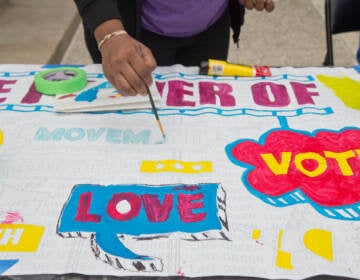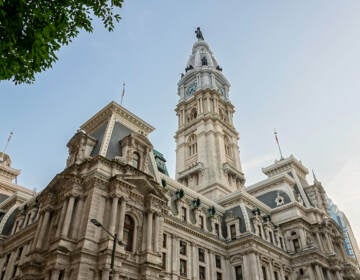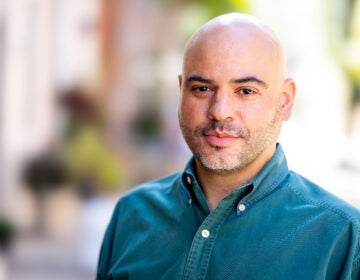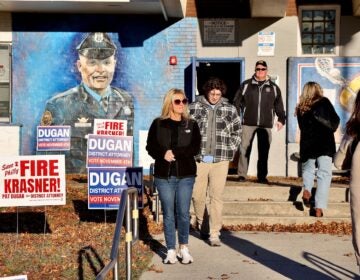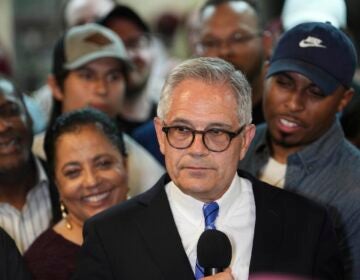What would Philadelphia’s immigrant communities like to see from the next mayor?
Expanding language access resources, strengthening protective policies, and investing in small businesses are among the priorities.
Listen 1:26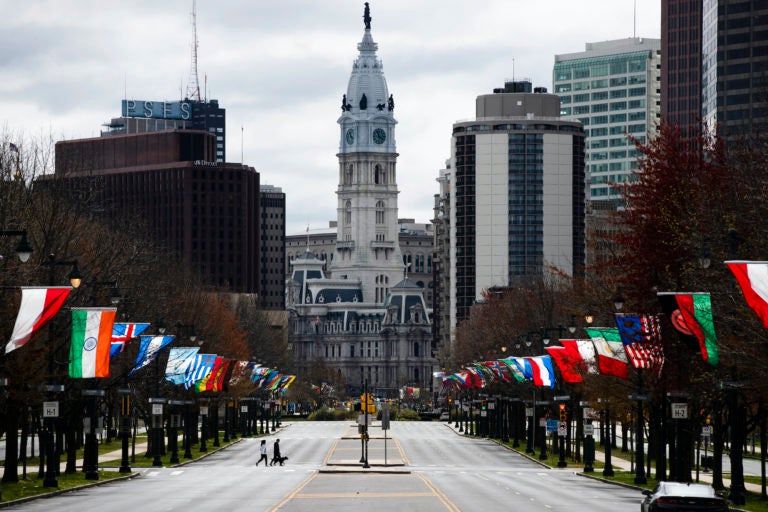
The Benjamin Franklin Parkway in Philadelphia, Friday, April 3, 2020. (Matt Rourke/AP Photo)
What questions do you have about the 2023 elections? What major issues do you want candidates to address? Let us know.
This story is a part of the Every Voice, Every Vote series.
As she quickly scribbled down notes and impressions, Ivonne Pinto-García looked on as Philadelphia mayoral candidates answered questions and spoke about their commitment to immigrant communities at the United Voices for Philadelphia forum.
The community leader and member of the local immigrant justice organization Juntos said this was the first time she had attended a mayoral forum that focused on the issues relevant to her community as a Latina immigrant.
“Para mí, creo que estos foros deben de ser siempre importantes para todos, y la invitación debe de ser en todos los idiomas, para que más personas que no conocemos esto nos integremos y podamos también trabajar con ellos”, dijo Pinto-García.
“For me, I think that these forums should always be important for everyone, and the invitation should be in all languages, so more people who don’t know about this can get involved, and we can work with them, too,” Pinto-García said.
Pinto-García was among the hundreds of attendees at the April 29 forum, held at the Community College of Philadelphia. Organizers provided headsets to listen to simultaneous interpretation of the event in either Spanish or Mandarin if needed. A meet-and-greet with other municipal candidates prior to the mayoral forum had the room abuzz, as attendees circulated and talked to their potential representatives face-to-face.
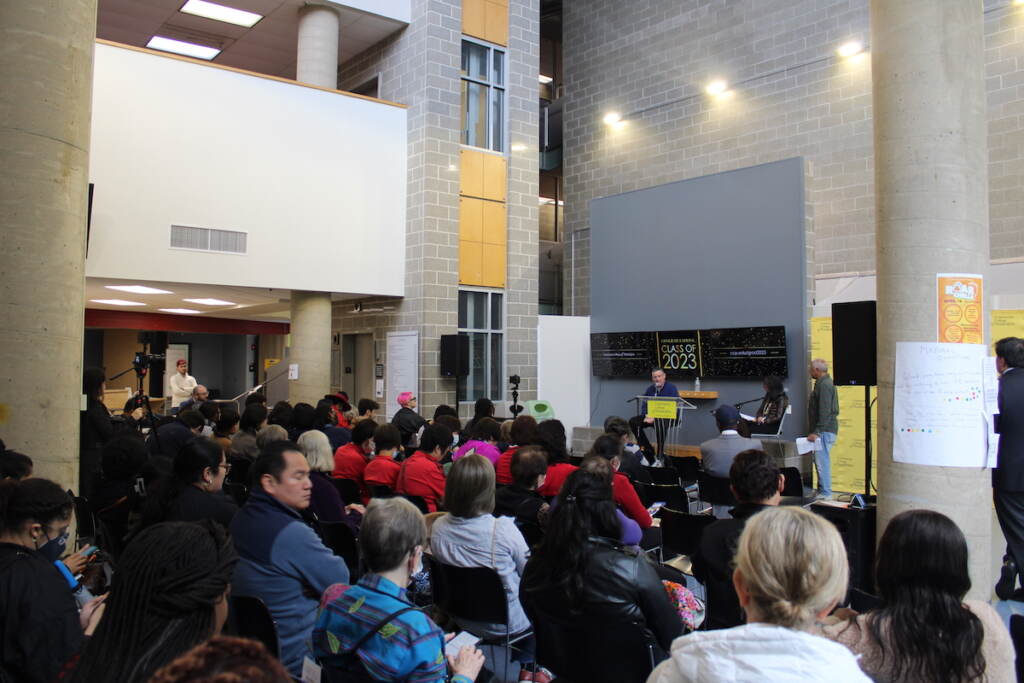
In the latter portion of the program, Jeff Brown, Warren Bloom, Jimmy DeLeon, Helen Gym, David Oh, and Cherelle Parker answered questions one at a time from organizers on their commitment to immigrant communities in the city.
Though Pinto-García and others were able to hear from candidates firsthand at the event, they say this is just the start of a dialogue they hope is ongoing.
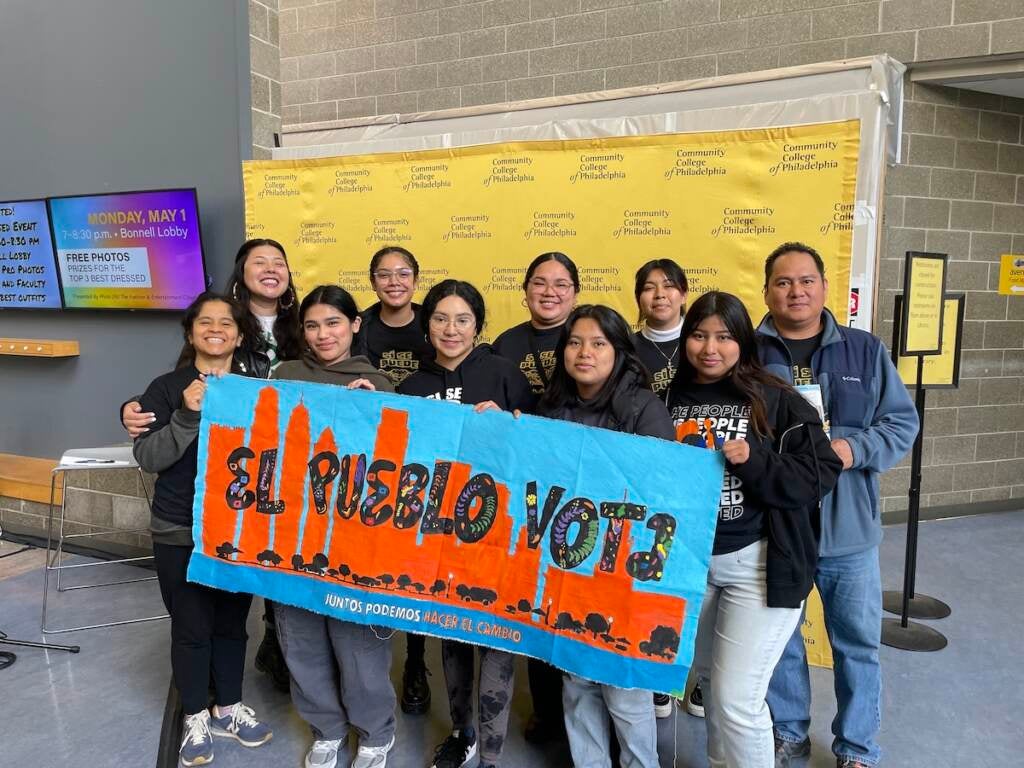
More than a quarter of Philadelphians are immigrants or have an immigrant parent, according to a 2018 Pew Charitable Trusts report. Overall, Philly’s foreign-born population has more than doubled over the past 30 years, from 7% in 1990 to 15% as of 2021.
Immigrant communities throughout the city have roots in every corner of the world. Within the diversity of languages, cultures, and experiences are different goals and wish lists that immigrant Philadelphians would like to see taken up by the next mayor of Philadelphia and members of City Council.
But immigrant leaders and immigrant-serving organizations say there are some common priorities much of the city’s foreign-born population shares. That list includes:
- Language access
- Public health and safety
- Support of small business owners and job training
- Advocacy at state and federal levels
- Expansion of sanctuary city policies
Peter Pedemonti, co-director of New Sanctuary Movement, an interfaith organization that advocates for immigrant justice throughout Philadelphia, said that more than any one issue, immigrant communities throughout the city need a “fighter” as a city leader.
“We need someone who’s going to … listen to what the immigrant community needs and fight with them,” Pedemonti said.
Here’s what immigrant community organizers and leaders told WHYY News are some of their top priorities for Philadelphia’s next mayor and members of City Council.
Language access
For many immigrants in Philly, language access is one of the most immediate and obstinate barriers to navigating a new city and finding the resources they need.
As of 2021, nearly a quarter of Philadelphians speak a language other than English at home, according to U.S. Census data.
Many of the candidates and attendees at the forum mentioned language access as a priority. As Philadelphia’s immigrant communities have grown, the city has continued to work to expand language access across departments and platforms.
But leaders say the city needs to do better for everyone from Spanish-speaking Philadelphians — a group that, in addition to immigrants, includes many members of the city’s Puerto Rican community — to those whose language is less represented overall.
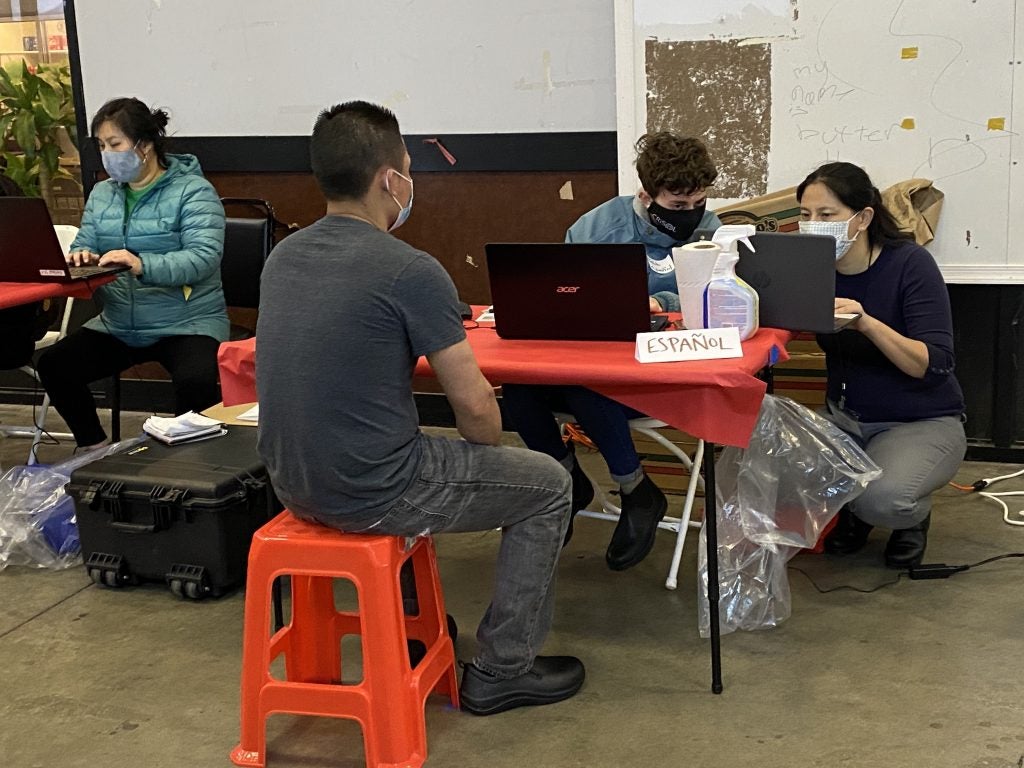
Cathryn Miller-Wilson, executive director of HIAS Pennsylvania, said the School District of Philadelphia and other organizations must ensure they provide language access to all immigrants. Miller-Wilson noted that over the past six or seven years, HIAS PA has seen more Indigenous immigrants from Guatemala coming to Philly. Many speak Mayan Indigenous languages, such as Mam or Q’eqchi, rather than Spanish.
A recent incident where a child wandered off from school and administrators were unable to communicate with their Q’eqchi-speaking parents highlighted that need, Miller-Wilson said, adding that she has recommended the district use Jeenie, a platform for translation and interpretation in various Mayan languages.
Shimaa Eid, a community organizer and educator, said that increasing access to adult English-language learning classes is also essential to bridging language divides and supporting immigrants in adjusting to the city. She said she often receives calls from the Arab immigrant population in Philly, which has grown in recent years, looking for ESL classes.
“We need culturally competent programs that meet and understand who we are and how different and unique we are,” Eid said. “There is an understanding that there are services available, and people should just get them. But for some reason, something is missing, and people still cannot access the service, and there isn’t enough for the really high demand.”
Eid said that efforts like the Equitable Community Engagement Toolkit project from the city’s Office of Innovation and Technology, which she is a part of, are a step forward in seeking community input to solve for some of the disconnect. But trying to meet people where they are is the next best step.
“Not all immigrants are having the same experience. Not all refugees have the same experience. Not all multilingual people have the same experience,” said Eid. “One key important factor that I’ve always been pushing in my work in language access and education is that we can’t provide one-size-fits-all programs to people, even if they speak the same language. We have to think about individuals in uniqueness, and it might be a lot of work, you can’t please everybody, but at least have that understanding.”
Public health and safety
Kaizan Kollin, health project coordinator at Philadelphia Chinatown Development Corporation, works with the Chinatown community, Chinese immigrants in Philly, and the city’s greater AAPI immigrant community.
Kollin says that some of the barriers to health care immigrant communities face include language accessibility, since many AAPI immigrants speak several different languages; transportation to clinics or health care services, especially for older residents; and limitations due to income,or lack of health insurance.
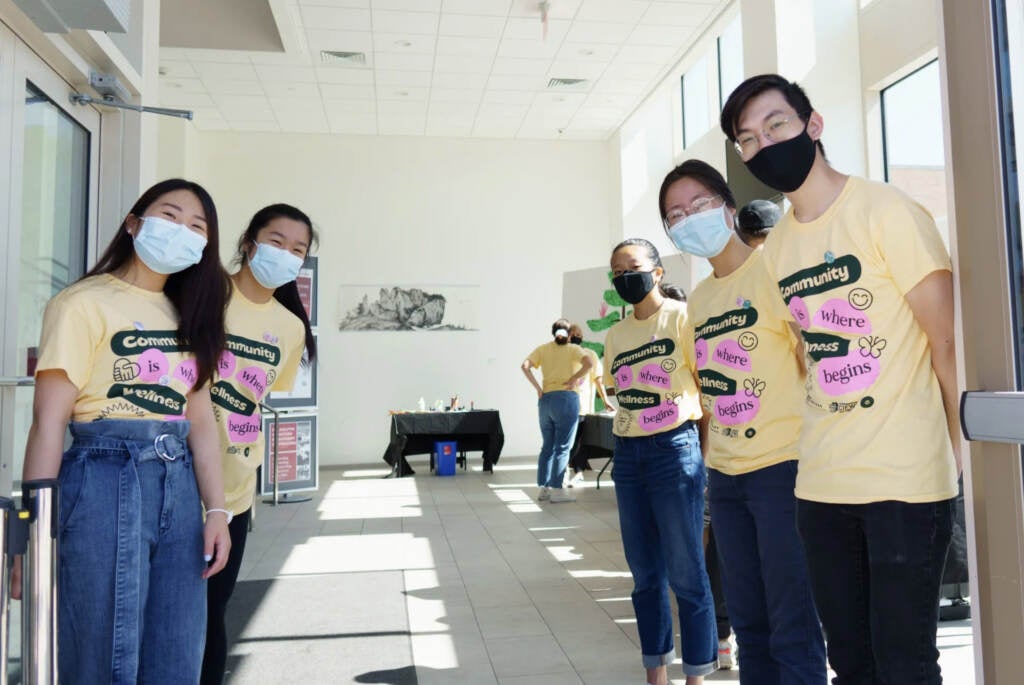
Studies show that undocumented immigrants in the U.S. have lower rates of health insurance coverage and use of primary care health services, which can lead to poorer overall health outcomes.
Kollin, who has been involved with PCDC’s Chinese Immigrant Family Wellness Initiative program, which focuses on AAPI youth mental health, said he’d like to see the city dedicate more resources for programs catered to different AAPI age groups in ways that are both language-accessible and culturally aware.
Kollin wants to see those resources extended not just to the AAPI community; he says a goal for the next mayor should be to foster coalition-building across different demographic groups.
“I think one big thing is bridging communities together,” Kollin said, noting that a program that would draw together Asian Americans and Black communities and encourage solidarity within those groups would be particularly meaningful.
“I feel like that would address a lot of issues, outside of health as well. But keeping it in health, again, to address those health inequities that both communities share and face and sort of doing it together in a way. I think it’s an effective and a good move in terms of moving that health needle towards true health equity.”
Tamara Jiménez, youth programming coordinator at La Puerta Abierta, an organization that provides mental health care and support to immigrants and refugees, says there is a need to meet people where they are, holistically — especially in terms of mental health services.
“We need resources, but we also need people that are going to be kind that are going to care,” she said.
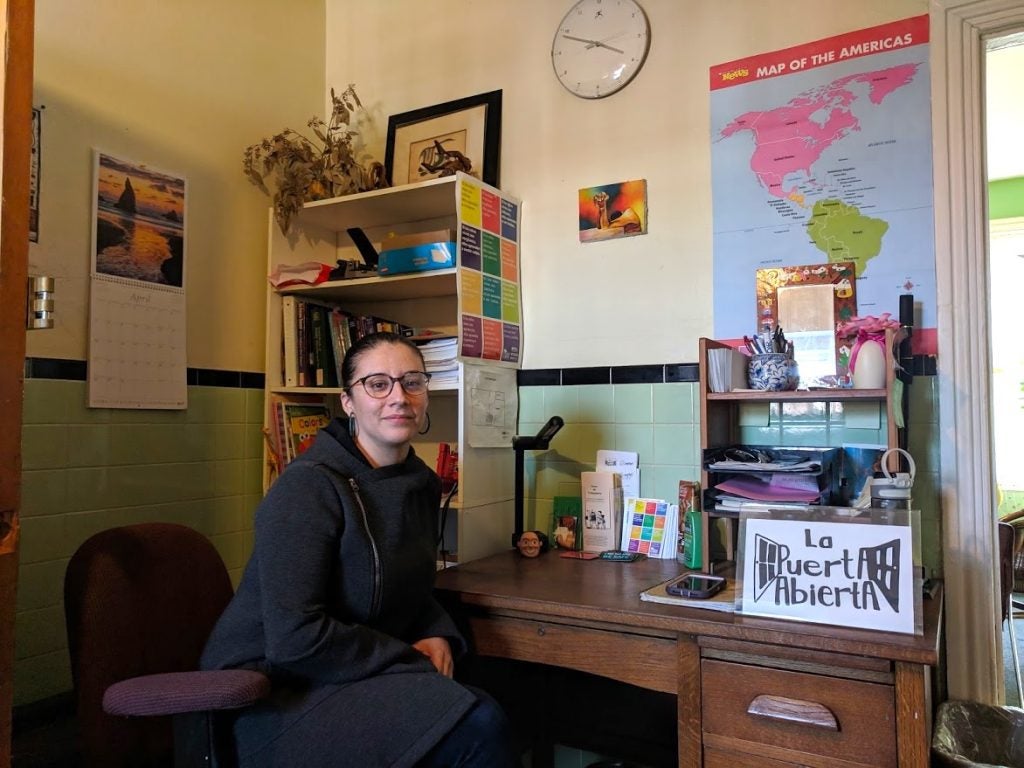
Members of many organizations who spoke with WHYY News cited gun violence prevention and public safety as significant issues affecting their communities and neighborhoods.
Sarun Chan, executive director of the Cambodian Association of Greater Philadelphia, said that CAGP is working with the city on a gun violence prevention grant. It’s an issue that is important to the organization because gun violence is prevalent in many of the neighborhoods where their community members live.
“That’s one of the traumas that we’re navigating and facing,” he said.
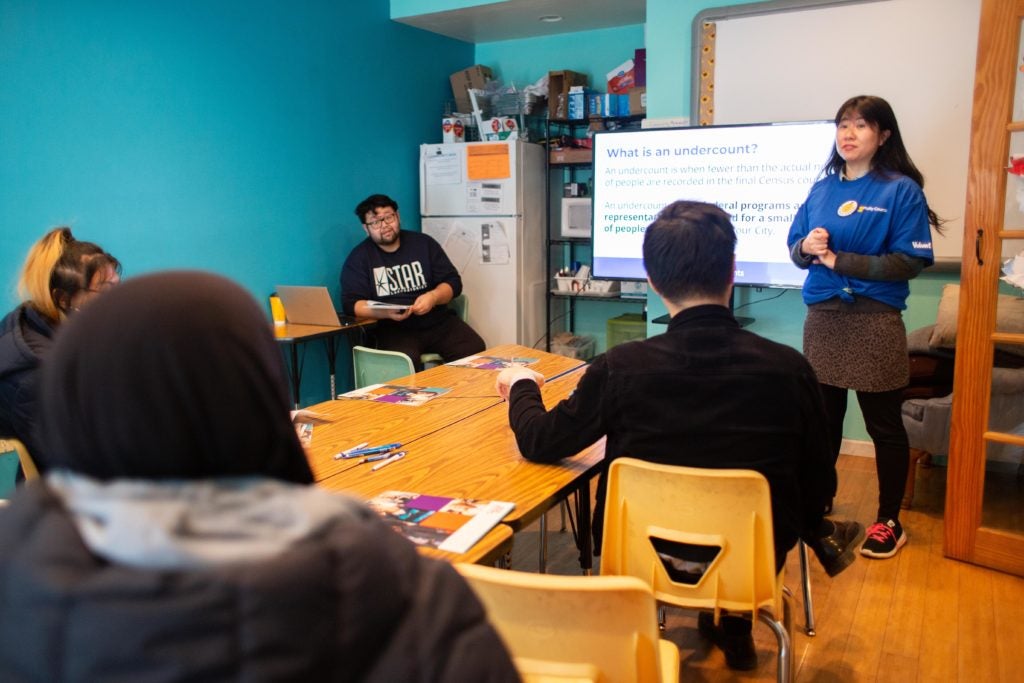
Thoai Nguyen, CEO of SEAMACC, a South Philly organization that provides social services to immigrants, refugees, and other marginalized groups, said that in terms of public safety, immigrant communities are too often an “afterthought” instead of being fully integrated into city solutions and decision-making.
Nguyen, who helped design the Green Living Plan, said that effort was a good example of incorporating immigrant communities’ knowledge and experiences into a wider public health and environmental justice initiative.
“The Green Living Plan has a lot of immigrant, refugee input in it, but it doesn’t have to be a separate immigrant Green Living plan, right? I’m a refugee, but I live with everybody,” Nguyen said.
Support of small business owners, job training
Immigrants in Philly are 43% more likely to start their own business compared to U.S.-born residents, according to a 2017 study.
Oni Richards, executive director of the African Family Health Organization, which serves African and Caribbean immigrants, says that resources should be directed both towards those immigrants who have come to the city, opened businesses, and achieved economic stability or mobility, as well as those in need of job training and other resources.
“There are different groups of African and Caribbean immigrants, those who have settled and are contributing a lot to Philadelphia, those who are still struggling and trying to find their place. And so I think, as mayor, how can we engage these communities in a more meaningful way?” Richards said.
Sarun Chan of the CAGP said a nuanced approach to job training and hiring is essential for creating professional development opportunities for members of different immigrant communities.
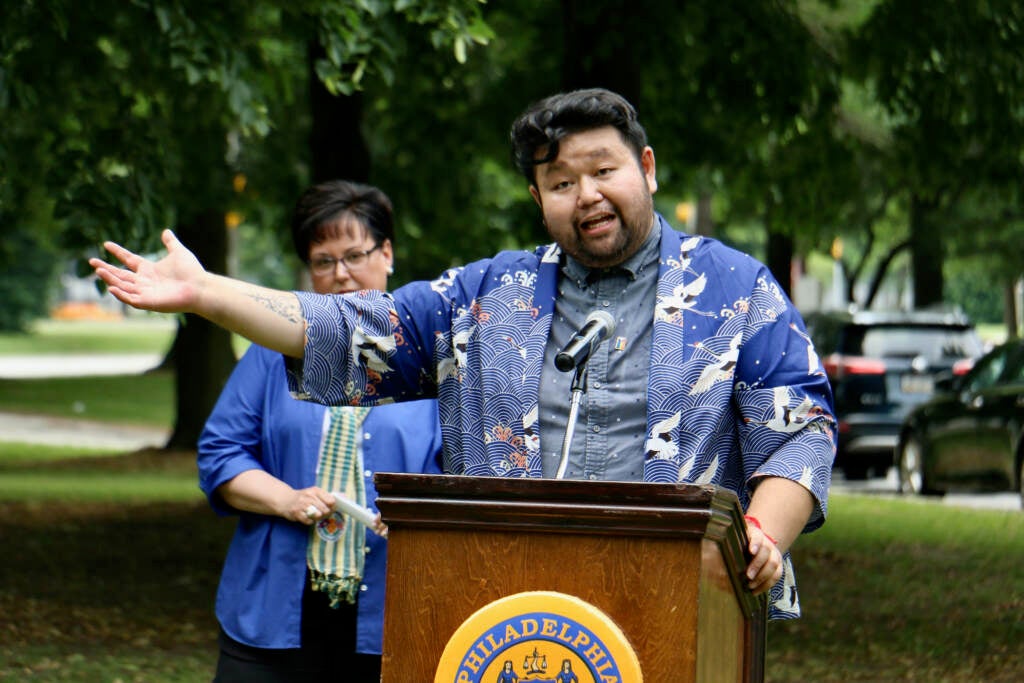
“When you break it down, the Cambodian, the Laotian community here in Philadelphia, a lot of us don’t have high school attainment, right, or going to four-year universities and things like that. So that means the pipeline towards career development is not there,” Chan said, noting that more flexibility and support for continuing education in the workforce is important for community members interested in working in education or home health care who are willing to pursue the training needed while working in those positions. That, in turn, adds to the cultural competency needed in those fields to serve other generations in that same community, Chan said.
Advocacy at state and federal levels
Pinto-García says one of the major movements she’d like to see at the state level is legislation allowing all state residents to obtain driver’s licenses, regardless of their immigration status.
“La licencia de conducir no es un privilegio, lo hemos visto, es una necesidad que todas las comunidades inmigrantes necesitamos”, dijo.
“A driver’s license is not a privilege, we’ve seen that, it’s a necessity that all of us need as immigrant communities,” she said.
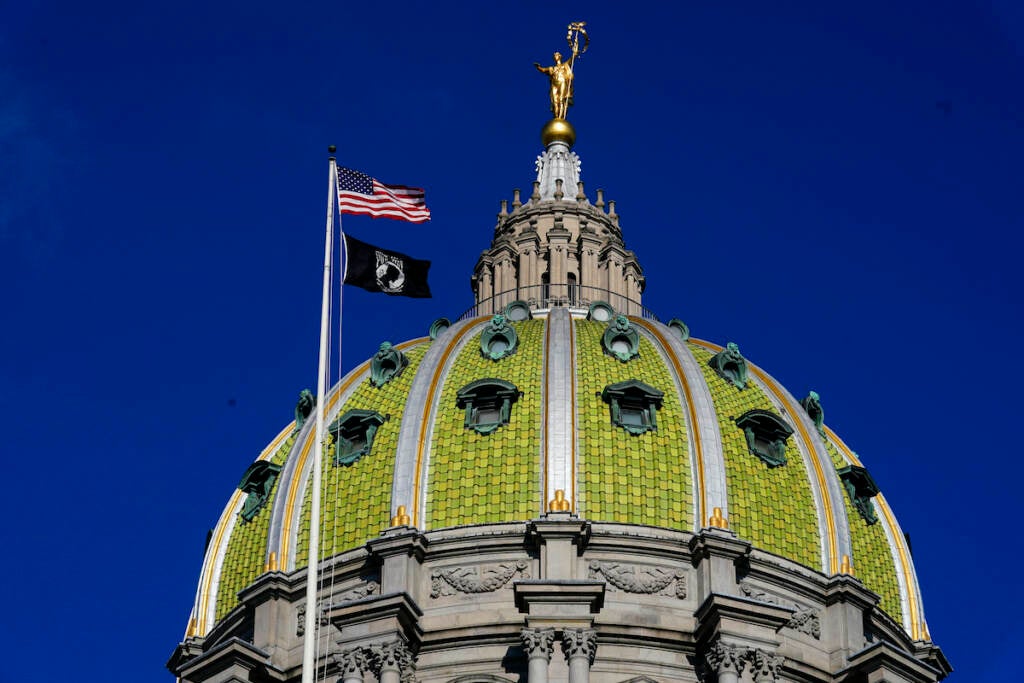
Driving Pennsylvania Forward is a coalition of organizations, including Juntos, HIAS Pennsylvania, and New Sanctuary Movement, which are pushing for the state Legislature to allow undocumented immigrants to obtain a state driver’s license; they have been unable to do so since requirements were changed in 2002. Although it is a state issue, advocates say city officials can come out in support of the effort.
Pedemonti of NSM said the same pressure should be applied to national lawmakers to create a path to citizenship for many undocumented immigrants in the U.S. — a legal reform which was initially in Congress’ Build Back Better Act but was cut from the final bill.
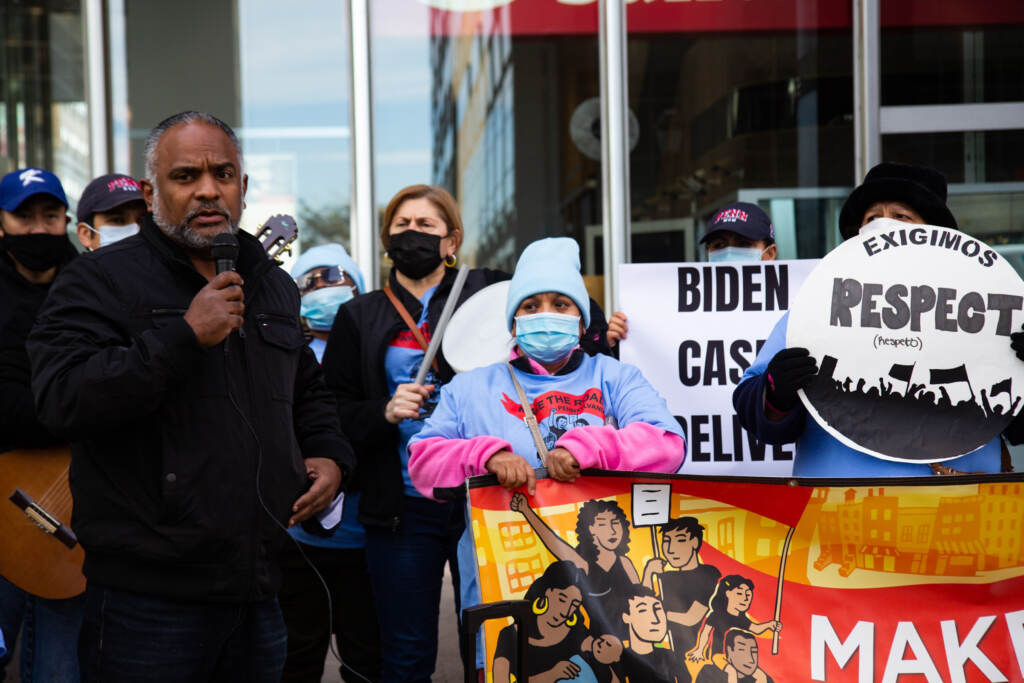
Miller-Wilson said local officials should also advocate for better national policy for immigrants to obtain federal work authorization more quickly — a change that would streamline the process for immigrants to obtain work authorization when they are expecting to file an asylum case, or are waiting for their case to be resolved. Sponsored immigrants also face a months-long wait when they apply for work authorization after they enter the country.
“If it’s not something that City Council has the power to do itself, then they should use their power to make other officers do their job. Like Congress, like Harrisburg,” Miller-Wilson said.
Expansion of sanctuary city policies
In February, Philadelphia received a Certified Welcoming City designation from Welcoming America, a nonprofit focused on immigrant inclusion throughout the U.S. The recognition comes on the heels of several changes made during Mayor Jim Kenney’s administration to improve protective policies for immigrants in the city.
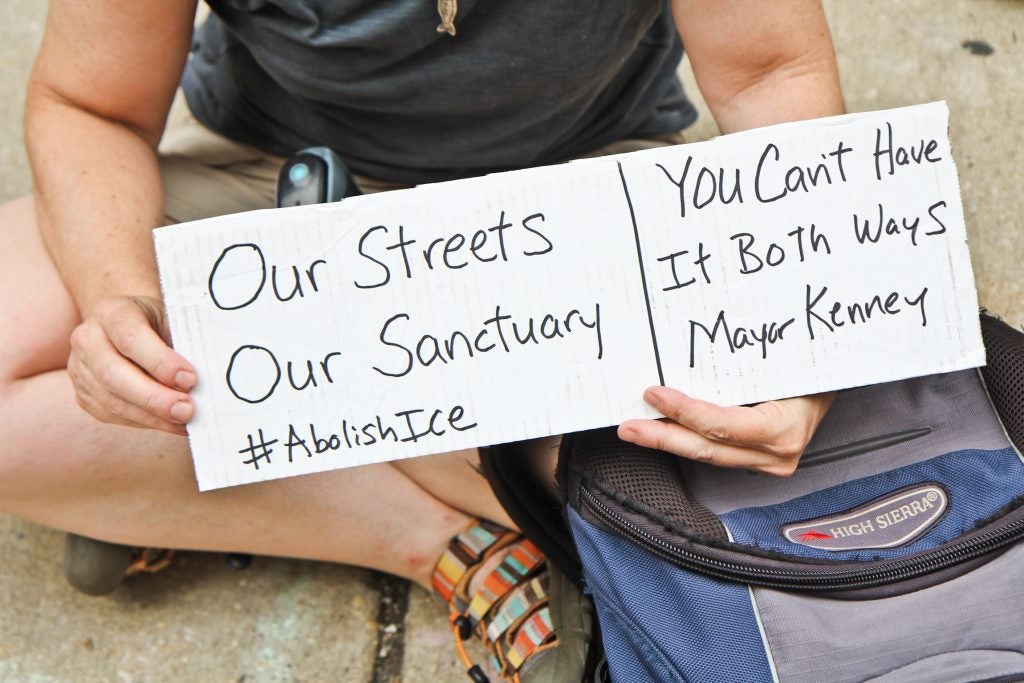
In 2019, after sustained campaigns by local activists and organizations, the city ended the PARS agreement, which allowed U.S. Immigration and Customs Enforcement access to the Philadelphia Police Department’s preliminary arraignment reporting system. Pedemonti says in addition to that, city police need to be educated on how to ensure they don’t share information with ICE, and other policies protecting immigrant parents from ICE as they drop their kids off at school should be put in place.
Many of the immigrant leaders who spoke with WHYY News touted the work of the city’s Office of Immigrant Affairs in supporting immigrant communities. The Office of Immigrant Affairs was first created by former Mayor Michael Nutter in 2013 and is now a permanent part of city government thanks to approval from voters in the May 2019 primary election.
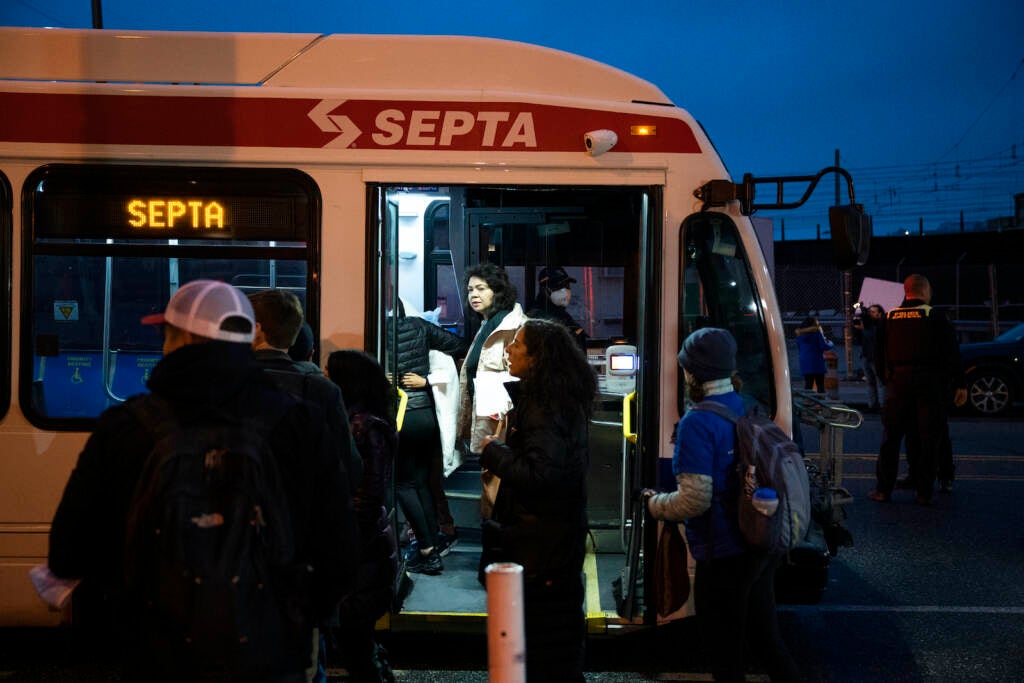
Pedemonti said that OIA also played a key role this past winter in welcoming and settling immigrants sent via buses from the U.S.-Mexico border by Texas Gov. Greg Abbott. NSM and others are preparing in the event that Abbott sends more buses of immigrants to Philadelphia once Title 42, the pandemic-era law permitting Border Patrol to turn immigrants away at the border, expires on May 11.
Advocates are also fighting for universal legal representation and want the city to continue to allocate budget funds to the Pennsylvania Immigrant Family Unity Project, which provides the funds necessary to ensure legal representation for detained immigrants.
 This story is a part of Every Voice, Every Vote, a collaborative project managed by The Lenfest Institute for Journalism. Lead support is provided by the William Penn Foundation with additional funding from The Lenfest Institute, Peter and Judy Leone, the John S. and James L. Knight Foundation, Harriet and Larry Weiss, and the Wyncote Foundation, among others. Learn more about the project and view a full list of supporters here.
This story is a part of Every Voice, Every Vote, a collaborative project managed by The Lenfest Institute for Journalism. Lead support is provided by the William Penn Foundation with additional funding from The Lenfest Institute, Peter and Judy Leone, the John S. and James L. Knight Foundation, Harriet and Larry Weiss, and the Wyncote Foundation, among others. Learn more about the project and view a full list of supporters here.

Get daily updates from WHYY News!
WHYY is your source for fact-based, in-depth journalism and information. As a nonprofit organization, we rely on financial support from readers like you. Please give today.



